Latest News
IPL 2025: Marsh, Pooran outgun Kolkata Knight Riders in high-scoring thriller
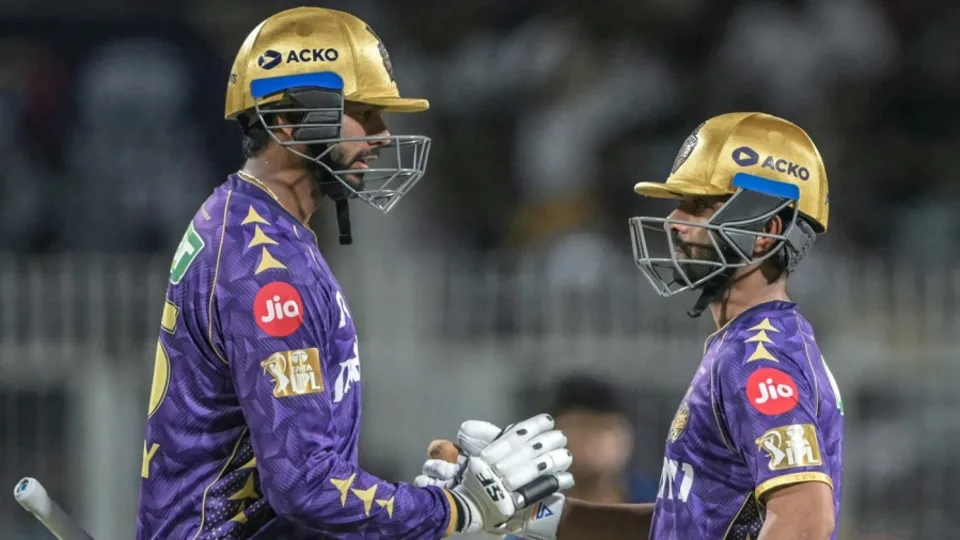
Lucknow Super Giants (LSG) smashed their second-highest total in the IPL, and conceded 90 in the powerplay during the chase, before inducing a collapse of 5 for 23 to beat Kolkata Knight Riders (KKR) at Eden Gardens.
Mitchell Marsh’s fourth fifty of IPL 2025, and Nicholas Pooran’s 36-ball 87, took LSG to 238. KKR’s top order fired too, with Ajinkya Rahane top-scoring with 61 off 35 balls. He shared handy partnerships with Venkatesh Iyer and Sunil Narine but could not take the hosts home.
On a day where all bowlers travelled, LSG stuck with five bowlers. Shardul Thakur and Akash Deep went for many wides and conceded over fifty in their four-over spells, but they also got key wickets that derailed the chase.
The hosts were 162 for 2 in the 13th over, and needed another 77 runs off 43 balls. But KKR’s middle-order batters kept taking chances and holing out to fielders. Ramandeep Singh hit a slot ball off Ravi Bishnoi to Aiden Markram at long-off, Angkrish Raghuvanshi miscued a reverse sweep off Avesh Khan to the wicketkeeper, and Venkatesh, who was the set batter, mis-hit a full ball off Akash Deep to long-on.
Despite big-hitting finisher Andre Russell falling cheaply to a full toss from Thakur, Rinku Singh who finished with a 15-ball 38*, kept the chase alive. But LSG’s plan of shuffling the bowlers and giving spinners two overs at the death paid off as they sealed a four-run win.
The chase started with Akash Deep struggling to find his line. He bowled three wides down leg, the first of which went to the boundary. The second would have too, had Rishabh Pant not run and dived to the left. Narine and Quinton de Kock whacked two slot balls for sixes. Narine edged two slower balls off Thakur as KKR blazed to 31 for 0 in two overs.
A jaffa from Akash Deep beat de Kock’s defence but tempted Pant into an unsuccessful review. Akash Deep, though, made amends next ball by reviewing an lbw that landed just in line with the stumps and beat de Kock’s slog across the line. Thakur, at the other end, went for the wide-line ploy and delivered three wides. Narine clubbed the other two for a six and a four over cover.
Rahane got a lucky edge behind point but helped himself to a flick for his first two fours. Pant kept Akash Deep on for his third over, but Rahane brought out Test-quality boundaries, including a square drive to a length ball. KKR’s captain then got hold of Avesh, this time with flicked sixes over the leg side, to take KKR to 90 for 1 at the end of the powerplay.
Digyesh Rathi, the in-form legspinner, was brought in right after the powerplay and he struck right away, landing one wide and getting it to turn away further for Narine to toe a big hit to long-off.
Venkatesh and Rahane kept the tempo up with a 71-run third-wicket stand off 40 balls. Rathi did find the edge off Venkatesh’s back-foot square drive but the ball deflected sharply and went off the flap of Pant’s gloves for four.
An innovative paddle from Rahane brought up a 26-ball fifty. Venkatesh whacked two boundaries off Rathi, which brought pace back into the attack. Thakur’s ploy to bowl wide again led to five consecutive extras to start the 13th over, but the over ended with Rahane chipping to cover, and the collapse to follow.
Earlier, Marsh and Markram put on 99, the highest opening partnership in this season so far. They added 59 off the first six overs: 46 of those came in three overs from one end, and 13 from the other. The duo took on Spencer Johnson for three fours and two sixes, most of them through the leg side, which had the shorter boundary.
Varun Chakravarthy, brought on in the fifth over, went for just five runs. He got turn and bounce, and when Markram premeditated a sweep by going across, he nearly got bowled. But Harshit Rana couldn’t follow up as the openers smacked him for two sixes. Markram cut over deep third, and Marsh picked the slower one and slapped it down the ground.
Narine came on right as the field spread but Marsh didn’t let him settle. He first slog-swept a length ball at the stumps, and then rocked back to pull a slightly short ball behind square leg. Three relatively quiet overs from the spinners went for 23 runs, and LSG were 95 for 0 at the halfway mark.
Harshit was cut on return when he went short and wide, but came back with an offcutter that beat Markram’s attempted flick, and hit the middle and off stumps. Marsh finished the over by cutting another short-and-wide ball to bring up a 36-ball fifty. His attack against pace continued against Vaibhav Arora with a six and a four over the leg side.
Pooran got going with a couple of cuts against Johnson and came into his own against the spinners. Varun went wide first up but Pooran reached out and drove it over cover for six. When Narine came on next over, Pooran nailed a slog sweep and a lofted hit down the ground that ensured Narine didn’t get a fourth over.
Russell got Marsh with a wide slower ball that was cut to deep point, but Pooran continued his onslaught. He brought up a 21-ball fifty with a six behind square, and two in front in the next over off Harshit. Russell had no place to hide against Pooran in the 18th over. The short balls were pulled, while a missed yorker was bashed down the ground. In the end, three fours and two sixes were hit, as the 24-run over was the most expensive of the innings.
Harshit went into the pitch with pace variations, and Arora bowled yorkers in the last two overs, where only three fours were hit despite Pooran batting through to the end.
Brief scores:
Lucknow Super Giants 238 for 3 in 20 overs (Nicholas Pooran 87*, Mitchell Marsh 81, Aiden Markram 47, Harshit Rana 2-51, Andre Rusell 1-32) beat Kolkata Knight Riders 234 for 7 in 20 overs (Ajinkya Rahane 61, Venkatesh Iyer 45, Rinku Singh 38*, Quinton de Kock 15, Sunil Narine 30, Harshit Rana 10*; Akash Deep 2-55, Shardul Thakur 2-52, Avesh Khan 1-45, Digvesh Rathi 1-33, Ravi Bishnoi 1-47) by four runs
[Cricinfo]
Latest News
The RAPP sheet: Steve Smith, Daryl Mitchell, Umesh Yadav among over 1300 players
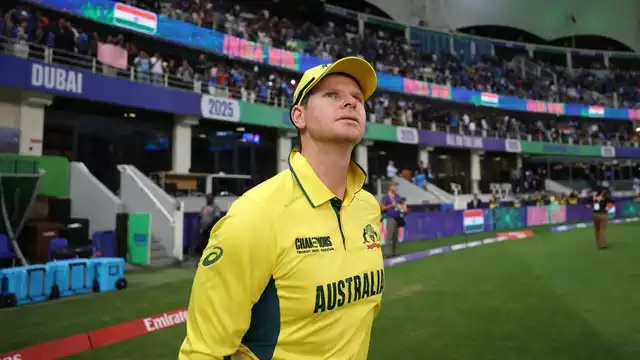
(a) not having been taken in the Player Auction and
(b) not having withdrawn from the Player Auction process.
Latest News
U19 World Cup: Pakistan overcome New Zealand by 8 wickets
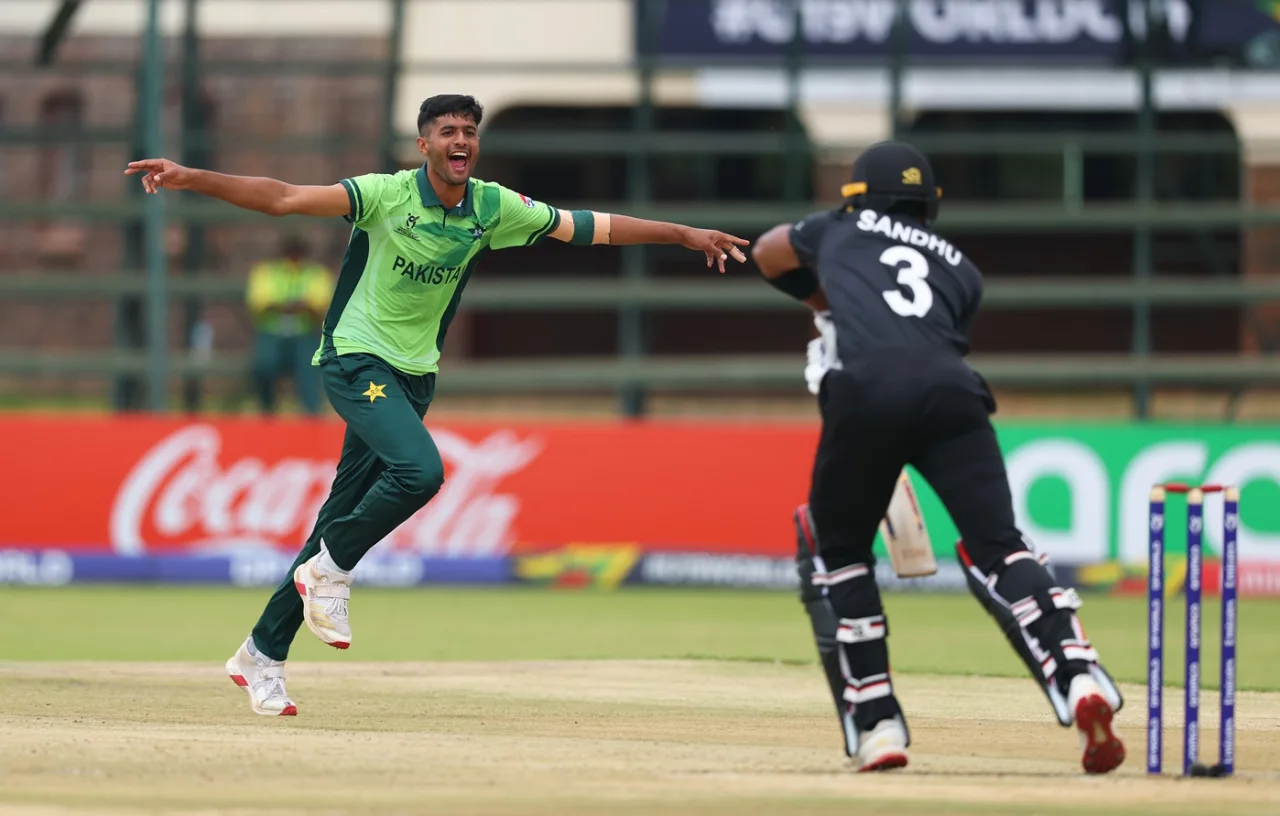
New Zealand began in a poor manner losing Marco Alpe for just 2. However, the second wicket partnership carried them to 59/1 inside 8 overs to give New Zealand an excellent platform. From thereon, New Zealand lost their last 9 wickets for just 51 runs in quite an extraordinary manner. The well-set Hugo Bogue’s dismissal triggered the collapse as Abdul Subhan and Ali Raza tormented New Zealand. The duo combined to pick seven wickets as the New Zealand innings came to an end as early as in the 29th over.
New Zealand Under 19s 110 in 28.3 overs (Hugo Bogue 39; Abdul Subhan 4/11, Ali Raza 3/36) lost to Pakistan Under 19s 112/2 in 17.1 overs (Sameer Minhas 76*; Mason Clarke 1/34) by 8 wickets
Latest News
U19 World Cup: Vihaan Malhotra ton headlines India’s massive win
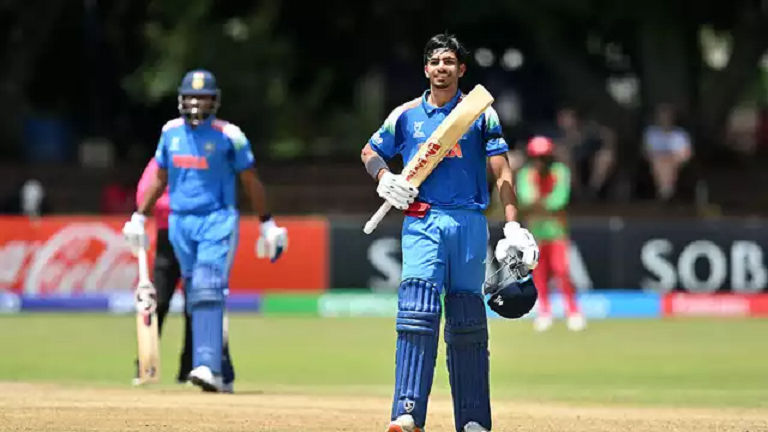
India Under 19s 352/8 in 50 overs (Vihaan Malhotra 109*, Vaibhav Sooriyawanshi 52, Abhigyan Kundu 61; Panashe Mazai 2-86, Tatenda Chimugoro 3/49, Simbarashe Mudzengerere 2-51) beat Zimbabwe Under 19s 148 in 37.4 overs (Leeroy Chiwaula 62; RS Ambrish 2-19. Ayush Mhatre 3-14, Udhav Mohan 3-20) by 204 runs[Cricbuzz]
-

 Business2 days ago
Business2 days agoComBank, UnionPay launch SplendorPlus Card for travelers to China
-

 Business3 days ago
Business3 days agoComBank advances ForwardTogether agenda with event on sustainable business transformation
-

 Opinion6 days ago
Opinion6 days agoRemembering Cedric, who helped neutralise LTTE terrorism
-

 Business6 days ago
Business6 days agoCORALL Conservation Trust Fund – a historic first for SL
-

 Opinion3 days ago
Opinion3 days agoConference “Microfinance and Credit Regulatory Authority Bill: Neither Here, Nor There”
-

 Opinion5 days ago
Opinion5 days agoA puppet show?
-

 Opinion2 days ago
Opinion2 days agoLuck knocks at your door every day
-
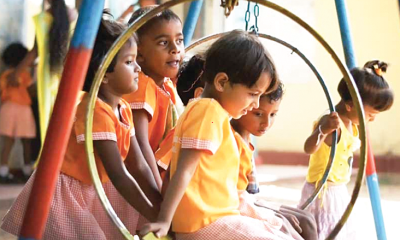
 Features5 days ago
Features5 days ago‘Building Blocks’ of early childhood education: Some reflections












